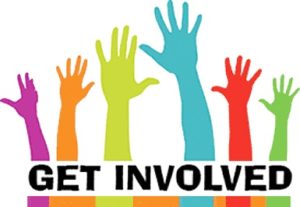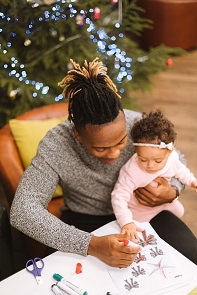In this month's PAC-UK guest blog Lara Leon tells us why she decided to research adoptee wellbeing and shares her findings. A huge thank you from all at PAC-UK to Lara for sharing her story, research and video resources.
We all seek to live “happily”. It’s a universal goal. Definitions of happiness vary, but one thing is common in all findings, and it is that wellbeing is a vital piece of the puzzle. Without wellbeing, there can be no happiness.
We want happiness for ourselves, and we want it for our children. Williamson, a researcher into happiness and director of Action for Happiness, found that the majority of parents, when asked what they wanted for their children, stated “for them to live happily” (Williamson, 2014).
So, it seems wellbeing really does matter to everyone. In fact, The World Health Organization (WHO) include it in their definition of health, stating:
“Health is a state of complete physical, mental and social well-being and not merely the absence of disease or infirmity.”
WHO, 2018
In the UK in 2010, the office for National Statistics (ONS) decided it was so important to the country, that it started tracking our wellbeing. And what of the wellbeing of adoptees as a specific group? Well, there’s no data. But research shows that adopted individuals are over-represented in therapy (e.g. Jones, 1997; Rhodes, 1993) and struggling to adjust and live well.
Why research wellbeing in adoptees in the first place?
My interest in wellbeing stems from my own struggles as an adoptee to live with wellbeing. I was adopted very soon after birth, in England in 1970. Back then there was very little education for prospective adopters and adoptive parents around how to parent a traumatised baby or infant.
In fact, there wasn't any consideration given to the trauma experienced by the baby due to separation from the biological parent at all. Indeed, since then things have moved on even more in terms of what we now know, but I will come back to that later.
So, my adoptive parents had no idea about what behaviours to expect, how I'd try (and fail) to cope with my reality and what patterns were being set up that would accompany me through most of my adult life. Patterns that I'd developed early on - faulty ways to try and meet my emotional needs.
I was a "good" child. A compliant, easy child. In truth, I was withdrawn and exhibited what we now know to be classic 'internalising' behaviours. Attempts at processing the loss, even pre-verbally.
I felt misunderstood. I felt guilty
I didn't have anywhere to take my feelings and my confusion. I became aware I did not have the 'right' feelings, feelings that others had within families. I felt like I was in the wrong place. I felt unhappy, anxious and as a result, very guilty. My mental health suffered, and I looked to those outside of myself (and my family) to make me feel better about myself. Naturally this didn't work either, but this pattern was sustained for many years.
Separation trauma is real, and we now know there's even more. Genetic memory plays a part in an early adoptee's life too. 9 months in the womb, absorbing all the mother's emotions. And once born, separated from her forever. A child knows who their mother is through all the senses, including visual recognition, smell, and visceral learning. Of course, this also means a child knows who their mother is not.
As mentioned, my mother (and most of those involved in adoption back then) was part of the "blank slate" era. Or what I 'affectionately' call the vanilla baby. In other words, if you adopt a baby early enough in their life, they won't know any difference – the faulty belief that they have no “felt experience” pre, during or immediately post birth. We now know of course; this is not true.
Adoptees are never neutral, no matter how early they were separated from their biological mother.
Therapy, psychology and research
My quest for answers on how to feel better led me to a long journey. A journey of learning to understand how to deal with low mood and of how to enhance my wellbeing. It also led me to research wellbeing in adults adopted as infants. I began the research in 2019 and concluded in December of 2020. The research was extremely emotional. By then, I had been supporting others in a therapeutic setting for some time but reading the research around the pain experienced by adopted people all over the world hit me hard.
The findings
The findings show that good adoptive parenting involves open communication within the adopted family unit. Normalising the feelings of adoptees is a crucial part of self-acceptance and of healthy psychological adaptation for us. There are several other key points to consider too, all equally as important in adoption parenting, and you can read them all here.
Adoption Parenting now and, in the future
Adoption parenting in 2021 and beyond allows for the very real impact of adoption to have space to exist within the family narrative and the attempts at building trust. This gives the adoptee the opportunity to develop a healthy self-concept in childhood, adolescence, emerging adulthood and beyond.
The future is education and support
In 2021, I began to make videos about my findings, because although this information is "out there" these conversations are not happening as frequently as they should be. Many adoptees are still feeling confused, isolated, and angry.
My goal is to help future adoptees achieve better levels of wellbeing, through direct and accessible education for adoptive parents; though:
- Understanding the adoptee's struggles
- Learning how best to manage the behaviours and feelings
- Helping them to build trust in an emotionally 'safe' environment
- Therapeutic adoption parenting
This is how we will ensure adoptees of the future stand a good chance at achieving wellbeing and have trust in those around them.
Lara Leon | August 2021
Connect with Lara: Website here | LinkedIn here | Twitter here | Instagram here
References
Jones, A. (1997). Issues relevant to therapy with adoptees, Psychotherapy: 34,1, 64-68
Rhodes, J. L. (1993). Dysfunctional Adolescent Behaviour in Adopted Children, The Family Journal: Counseling and Therapy for Couples and Families, 1, 349-357
World Health Organization (2018). What is the WHO definition of health? WHO, available here.
Williamson, M. (2014). “Why does happiness matter?” The Guardian online, available here.

Become a PAC-UK 'guest blogger'
Please note, all content published on this page is provided by our guest blogger/s, based on their real-life experiences. We invite you to discuss this blog via PAC-UK's Twitter profile and ask you to tag @PACUKadoption in to your posts and use the hashtag #PacukBlog
This blog is the sixteenth of our regular 'guest blogger' platform which we started in 2019. We would love to hear from adoptees, birth parents (and relatives), adoptive parents/carers, special guardians and professionals who are interested in taking part in future blogs. If this interests you please email leon@pac-uk.org.




